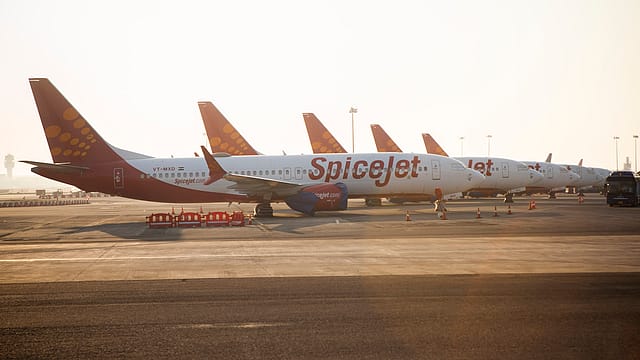ICAO audit found SpiceJet ops, safety processes in order, says airline
ADVERTISEMENT

SpiceJet today said the International Civil Aviation Organisation (ICAO), a specialised agency of the UN, in an audit has found the operations, safety processes and systems of the airline are in order. The audit was conducted under the universal safety oversight audit programme (USOAP) on November 14 at SpiceJet’s head office in Delhi.
“On 14 November 2022, the ICAO Auditing Committee visited the SpiceJet Head Office, from where all SpiceJet flights are controlled, and the SpiceJet flight dispatch offices at Delhi Airport. They audited and reviewed the various flight critical functions and operational areas such as flight planning, weather assessment, route planning, aircraft serviceability, operations to critical airports, pilot rostering systems, cabin safety procedures etc,” the airline said.
The development comes two days after a SpiceJet flight made an emergency landing at Kochi airport due to a technical snag. The flight was coming from Jeddah to Kozhikode and had 197 passengers onboard including six crew members.
SpiceJet on DGCA’s radar
Over the past few months, SpiceJet has witnessed several incidents of technical snags that have put the beleaguered airline under the directorate general of civil aviation’s (DGCA’s) radar. In July, after eight technical snags were witnessed within a month across SpiceJet flights, the aviation regulator issued a show-cause notice to the airline, asking it to explain the technical failures during flight operations.
On July 27, the regulator asked the airline to operate at a 50% capacity for eight weeks and later extended the curbs till October 29. The cap was lifted in October last week. The airline was allowed to operate at full capacity for the winter schedule, between October 30, 2022, and March 25, 2023.
The DGCA also asked the airline to send engine oil samples to Pratt & Whitney Canada for PW51A oil analysis to ascertain the presence of metal and carbon particles after a SpiceJet flight made an emergency landing in Hyderabad on October 12, owing to the presence of smoke inside the aircraft cabin.
Financial distress
Apart from witnessing technical snags, the airline is also cash-strapped, with losses widening to ₹837.8 crore for the quarter that ended September 30, 2022, against ₹561.7 crore in the corresponding quarter last year. SpiceJet, whose rank has slipped from 2nd to 5th in terms of market share, has attributed its losses to record high fuel prices and a depreciating rupee against the US dollar. Its revenue in the July to September quarter this year stood at ₹2,104.7 crore against ₹1,538.7 crore in the same quarter of the previous year.
On Monday, the share price of SpiceJet surged 1.93% at ₹39.70. During the session, its market cap stood at ₹2,389 crore, with 6,57,794 shares exchanging hands on the Bombay Stock Exchange against a two-week high of ₹2.9 lakh.